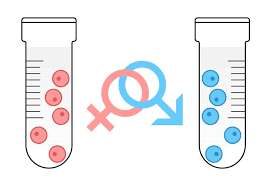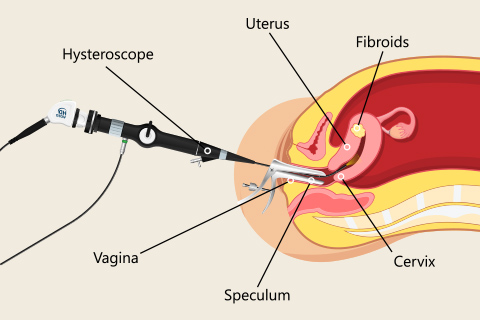Understanding Oligospermia: Causes, Symptoms, Treatments, and the Role of IVF
Oligospermia, a condition characterized by a low sperm count, can be a source of concern for couples trying to conceive. This condition not only affects male fertility but can also be a contributing factor in couples experiencing difficulty conceiving. In this comprehensive blog post, we will delve into the world of oligospermia, discussing its symptoms, causes, treatments, and how it relates to In Vitro Fertilization (IVF). Additionally, we will explore dietary choices that can potentially help patients manage this condition.
What Is Oligospermia?
Oligospermia, often referred to as a low sperm count, is a condition in which the concentration of sperm in a man’s ejaculate is below the normal threshold. It is a common cause of male infertility and can make it challenging for couples to achieve pregnancy naturally.
Symptoms of Oligospermia
This condition is typically asymptomatic, meaning it doesn’t manifest with noticeable physical symptoms. The primary indicator of this condition becomes apparent when a couple struggles to conceive. Routine semen analysis, conducted as part of fertility testing, is essential for diagnosis.
Causes of Oligospermia
Understanding the underlying causes of oligospermia is crucial for effective treatment. Several factors can contribute to a low sperm count:
- Varicocele: Varicocele is a condition in which the veins that drain the testicles become enlarged and cause overheating of the testicles, negatively impacting sperm production.
- Hormonal Imbalances: Hormonal issues, such as low testosterone levels or thyroid disorders, can affect sperm production.
- Infections: Infections, especially in the reproductive system, can lead to sperm count reduction.
- Lifestyle Factors: Smoking, excessive alcohol consumption, drug use, and obesity have all been linked to lower sperm counts.
- Environmental Toxins: Exposure to certain environmental toxins, chemicals, or radiation can affect sperm production and quality.
- Genetic Factors: In some cases, genetic factors may contribute to oligospermia.
Treatments for Oligospermia
The treatment approach for oligospermia depends on the underlying cause. Here are some common treatments:
- Varicocele Repair: Surgical correction of varicoceles can improve sperm count in some cases.
- Hormone Therapy: If hormonal imbalances are detected, hormone therapy may be prescribed to restore normal hormone levels.
- Antibiotics: For infections, antibiotics can help clear the infection and potentially improve sperm count.
- Lifestyle Changes: Adopting a healthier lifestyle, including quitting smoking, moderating alcohol intake, losing weight if needed, and reducing exposure to environmental toxins, can all have a positive impact on sperm count.
- IVF and Assisted Reproductive Techniques (ART): When conservative treatments fail, couples may explore fertility treatments like IVF. IVF can help bypass low sperm count issues by directly introducing sperm to the egg, increasing the chances of fertilization.
IVF and Oligospermia
IVF can be an effective solution for couples dealing with oligospermia. In cases where the male partner has a low sperm count, IVF offers a way to overcome this hurdle. The process involves retrieving eggs from the female partner and fertilizing them with sperm in a controlled laboratory setting. This allows for the selection of the healthiest sperm for fertilization, increasing the chances of a successful pregnancy.
Dietary Considerations for Oligospermia
Diet plays a crucial role in overall reproductive health. While it’s not a direct treatment for oligospermia, a healthy diet can support sperm production and quality. Here are some dietary recommendations:
- Antioxidant-Rich Foods: Foods high in antioxidants, such as fruits (berries, citrus), vegetables (broccoli, spinach), and nuts (walnuts), can help protect sperm from oxidative damage.
- Omega-3 Fatty Acids: Incorporating fatty fish (salmon, mackerel), flaxseeds, and walnuts into the diet can support healthy sperm.
- Zinc: Foods rich in zinc, like lean meats, poultry, and legumes, are essential for sperm production.
- Vitamins and Minerals: Ensure an adequate intake of vitamins like vitamin C, vitamin D, and minerals like selenium and zinc through a balanced diet or supplements if recommended by a healthcare provider.
Oligospermia can be a challenging condition for couples aspiring to have children. However, with the right diagnosis, treatment, and lifestyle modifications, many individuals with oligospermia can improve their sperm count and fertility. In cases where conservative treatments prove ineffective, IVF serves as a valuable option to help couples achieve their dreams of parenthood. While diet alone may not cure oligospermia, adopting a healthy and balanced diet can contribute to overall reproductive health and support other treatments aimed at improving sperm count and quality.




